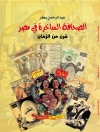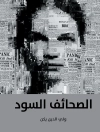POLITICS OF DISINFORMATION
Discover a comprehensive exploration of the underlying theories of disinformation, and their impact, from leading voices in the field
Politics of Disinformation delivers a thorough discussion of the overwhelming problem of modern fake news in the political arena. The book reviews fundamental theoretical concepts of disinformation and analyzes the impact of new techniques of misinformation and the dissemination of false information in the public space. A group of distinguished authors provide case studies throughout the text to illustrate the effect of disinformation all around the world; including, but not limited to Europe, the Middle East, and South America.
The chapters include examination of topics such as the rise of populism, the increasing political influence of social networks, the use of fact checking to combat fake news and echo chambers, and comparative analyses of how disinformation affects conservatives and liberals. A final case study examines all of these factors as they relate to the recent Spanish election of 2019 and how they affected the results. This book also includes:
- A thorough introduction to the politics of disinformation and the relationship between disinformation and populism
- An exploration of the democratic implications of networked persona construction and the likely reaction to disinformation by future journalists
- Discussions of the third person effect and fake news in Spain, as well as perceptions, views, and definitions of fake news among Israeli conservatives and liberals
- A treatment of disinformation in campaigns in France, Brazil, and Spain
Perfect for use as a reference book for students and scholars of political communication and political science, Politics of Disinformation will also earn a place in the libraries of practicing journalists and students of journalism and media studies, as well as those studying or working in communications.
Table of Content
Introduction 1
Part I Theoretical Approaches to Disinformation 5
1 Disinformation Matters: Analyzing the Academic Production 7
Nereida Cea and Bella Palomo
2 A Materialist Approach to Fake News 23
Thales Lelo and Roseli Fígaro
3 Using International Relations Theories to Understand Disinformation: Soft Power, Narrative Turns, and New Wars 35
Giuseppe Anzera and Alessandra Massa
Part II Disinformation in Politics 49
4 Do You Believe in Fake After All? Whats App Disinformation
Campaign During the Brazilian 2018 Presidential Election 51
Rose Marie Santini, Giulia Tucci, Débora Salles, and Alda Rosana D. de Almeida
5 The Politics of Disinformation in Indonesia (2014–2019) 67
Masduki
6 Ideology and Disinformation: How False News Stories Contributed to Brexit 79
Imke Henkel
7 Spanish Politicians Dealing with Fake News in the April 2019 General Election 91
Germán Llorca-Abad, Guillermo López-García, and Lorena Cano-Orón
Part III Fact-checking in Polítics 105
8 Checking Verifications: Focus and Scope of Collaborative Projects to Monitor Election Campaigns in France, Brazil, and Spain 107
Dolors Palau-Sampio and Adolfo Carratalá
9 Structures of Resistance: Citizen-generated Reporting in Times of Social Unrest 119
Tomás Dodds
10 Robot Strategies for Combating Disinformation in Election Campaigns: A Fact-checking Response from Parties and Organizations 132
Eva Campos-Domínguez, Cristina Renedo Farpón, Dafne Calvo, and María Díez-Garrido
11 “That Prodigious Machinery Designed to Exclude”: The Discourse of Post-truth in Algorithmic Culture 146
Jakub Nowak
Part IV The Effects of Disinformation on Everyday Life 159
12 Teens, Social Media, and Fake News: A User’s Perspective 161
Heidi Mercenier, Victor Wiard, and Marie Dufrasne
13 Understanding Which Factors Promote Exposure to Online Disinformation 173
Carlos Rodríguez-Pérez and Gustavo R. García-Vargas
14 Rumoring, Disinformation, and Contentious Politics in the Digital Age: The Case of China and Beyond 187
Jun Liu
About the Authors 200
Index 205
About the author
Guillermo López-García is Full Professor of Journalism at the University of Valencia. His research focuses on political and online communication.
Dolors Palau-Sampio is Senior Lecturer of Journalism at the University of Valencia. Her research focuses on narrative journalism, fact-checking, quality journalism, and accountability.
Bella Palomo is Full Professor of Journalism at the University of Malaga. She specializes in digital journalism, active audiences, social media, journalistic routines, and editorial design.
Eva Campos-Domínguez is Senior Lecturer of Journalism at the University of Valladolid. Her research focuses on political and online communication.
Pere Masip was Senior Lecturer in the Faculty of Communication at Blanquerna at the Universitat Ramon Llull in Barcelona. He also lead the research group Digilab.












